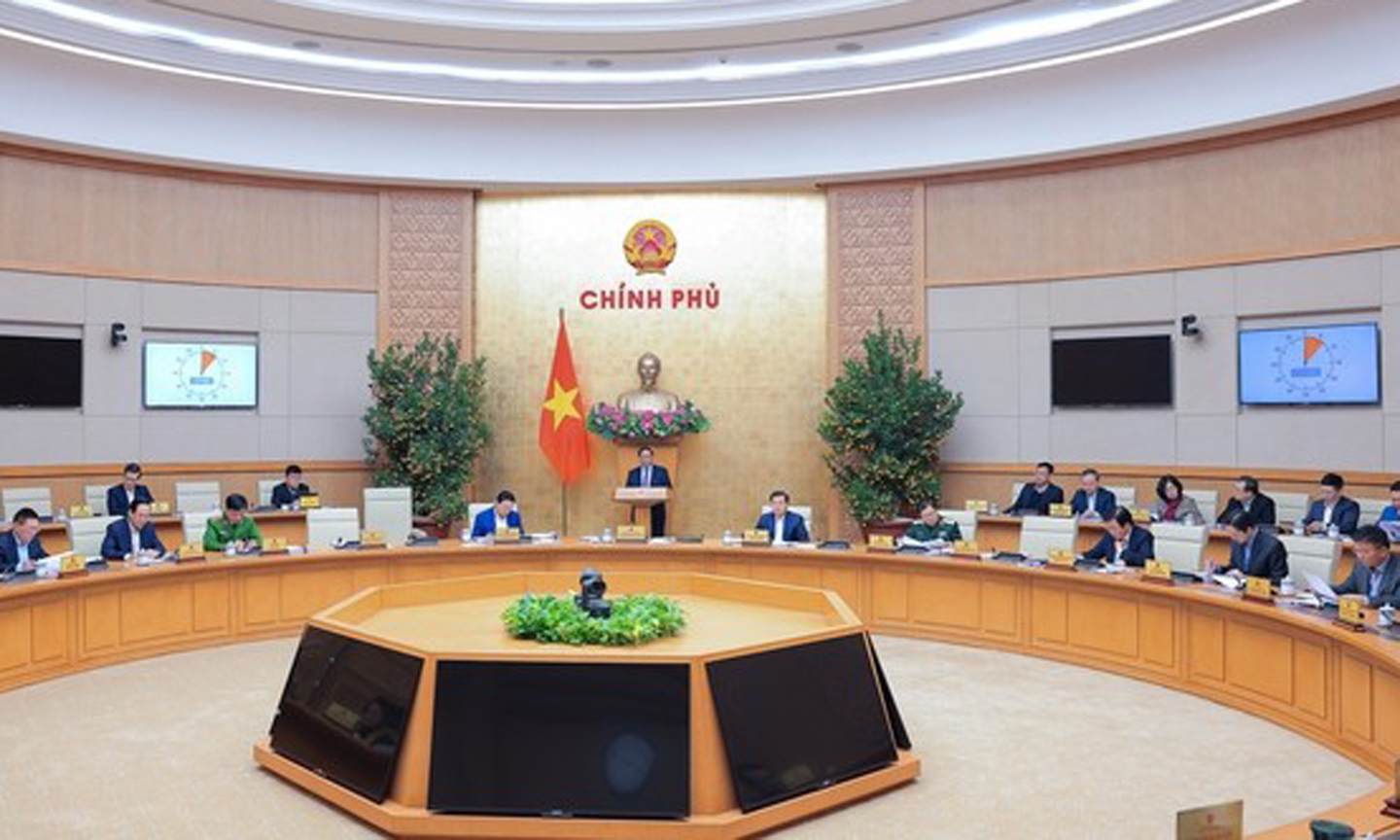Government law-building session to discuss 11 contents
ABO/NDO- Prime Minister Pham Minh Chinh chaired the Government’s law-building session for February in Hanoi on February 27, during which participants will give ideas on five bills, five law-building proposals and a law, and ordinance building programme.
The five bills to be opined over at the meeting are the draft Law on People's Air Defense; draft Law on Management and Use of Weapons, Explosives and Supporting Tools (revised); draft Law on Cultural Heritage (revised); draft law on the amendments and supplementations to a number of articles of the Law on Standards and Technical Regulations; and draft law on the amendments and supplementations to a number of articles of the Pharmacy Law.
Meanwhile, the Government will consider the proposals of building five laws, namely the Diplomatic Ranks Law, Aviation Law (revised); Railway Law (revised); Law on Geology and Minerals; and Law on Digital Technology Industry.
 |
| Government law-building session to discuss 11 contents. |
Participants will also discuss a proposal on the law and ordinance building programme for 2025 and an amended version for 2024. Opening the meeting, on the occasion of the 69th anniversary of the Vietnamese Doctors Day (February 27, 1955-2024), PM Chinh extended greetings and expressed respect to all doctors, health officials and workers across the country.
The Government leader underlined that the law-building workload in February are high as the Government is scheduled to submit to the National Assembly (NA) a law and ordinance building programme for 2025 and an amended version for 2024, and finish bills to be discussed at the seventh session of the 15th NA.
He said that all the contents to be debated at the meeting are important, difficult, and complicated with great influence to the building of a harmonious, completed, and modern legal system, and unlocking resources for development.
The PM asked ministers and heads of ministry-level agencies and Government agencies to seek effective approaches to the issues to ensure good progress and quality of the work.
Along with the building of the laws, it is necessary to promptly design and issue decrees guiding the implementation of the laws, thus quickly bringing them to life.
(Source: NDO)
 về đầu trang
về đầu trang







